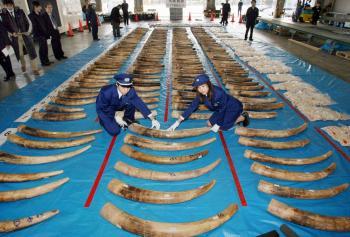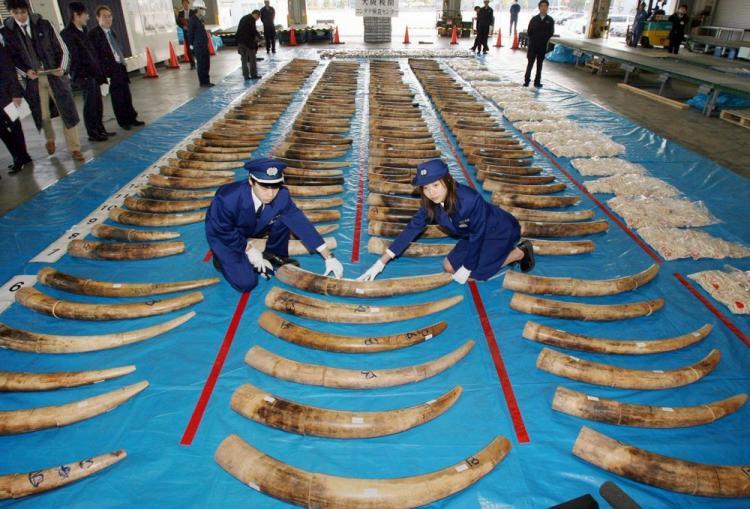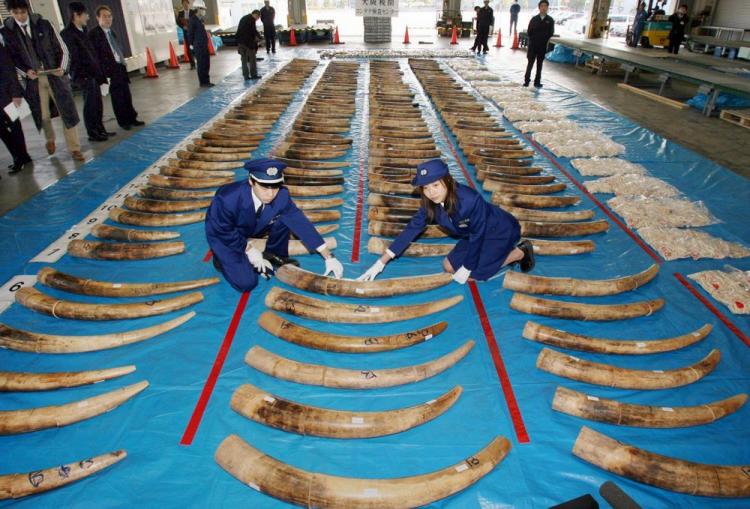Zambia and Tanzania’s request to hold a one-off sale for their ivory stockpile, valued of approximately $15 million, were rejected during the U.N.’s Convention on the International Trade of Endangered Species of Fauna and Flora (CITES) annual meeting in Doha. The increase of poaching and illegal ivory sales in both countries in 2009 were the main reasons for the rejection.
Since the ivory trade was banned in 1989, there has been an exemption that allows countries that have proven effective in conservation measures to have a small amount of regulated trade in ivory. Currently, Zambia and Tanzania are forbidden to sell ivory.
“It’s crucial that central and western African nations suppress the brazen poaching, mainly fueled by organized crime and illegal ivory markets openly operating within their borders before any further ivory sales take place,” said Sybille Klenzendorf, managing director of Species Conservation at WWF-U.S. in a press release.
According to a report from the Elephant Trade Information System (ETIS), which keeps track of ivory seizures, there exists a direct relationship between an increase in poaching and poor law enforcement. In the past two years, the number of elephants that were killed as a result of poaching has quadrupled.
Opponents of the ban say that Tanzania ought be allowed to dispose of their ivory stockpile as to avoid spending large sums of money on security and storage.
During the meeting, in which 175 countries participated, some animals were added to the list of protected species. The rise of e-commerce is now believed to be one of the latest and biggest threats to wildlife, as global Internet access has made it increasingly easy to buy and sell illegal wildlife products with little control.
“The transactions kind of come and go and take place before anybody really even knows it, leaving it to the post office to be enforcing this global regime of trade regulation,” Paul Todd, a campaign manager for the International Fund for Animal Welfare (FAW) was reported as saying by ABC news in Australia.
Back in 2005, a FAW investigation reported that in one week alone, over 9,000 live animals or products in five categories of animals were for sale on English-language Web sites, chat rooms and the popular auction site eBay. Some of the live animals found included a gorilla in London, and a Siberian tiger in the U.S. Body parts and products were also commonly found with ivory being common.
Since the ivory trade was banned in 1989, there has been an exemption that allows countries that have proven effective in conservation measures to have a small amount of regulated trade in ivory. Currently, Zambia and Tanzania are forbidden to sell ivory.
“It’s crucial that central and western African nations suppress the brazen poaching, mainly fueled by organized crime and illegal ivory markets openly operating within their borders before any further ivory sales take place,” said Sybille Klenzendorf, managing director of Species Conservation at WWF-U.S. in a press release.
According to a report from the Elephant Trade Information System (ETIS), which keeps track of ivory seizures, there exists a direct relationship between an increase in poaching and poor law enforcement. In the past two years, the number of elephants that were killed as a result of poaching has quadrupled.
Opponents of the ban say that Tanzania ought be allowed to dispose of their ivory stockpile as to avoid spending large sums of money on security and storage.
During the meeting, in which 175 countries participated, some animals were added to the list of protected species. The rise of e-commerce is now believed to be one of the latest and biggest threats to wildlife, as global Internet access has made it increasingly easy to buy and sell illegal wildlife products with little control.
“The transactions kind of come and go and take place before anybody really even knows it, leaving it to the post office to be enforcing this global regime of trade regulation,” Paul Todd, a campaign manager for the International Fund for Animal Welfare (FAW) was reported as saying by ABC news in Australia.
Back in 2005, a FAW investigation reported that in one week alone, over 9,000 live animals or products in five categories of animals were for sale on English-language Web sites, chat rooms and the popular auction site eBay. Some of the live animals found included a gorilla in London, and a Siberian tiger in the U.S. Body parts and products were also commonly found with ivory being common.





